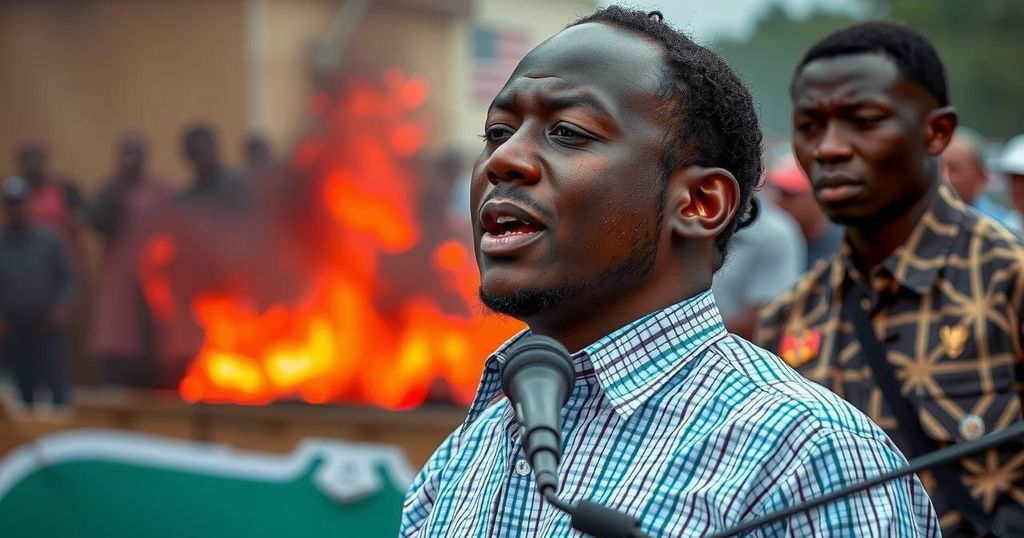Mozambique Erupts in Violence After Confirmation of Election Results

Following a court ruling that confirmed Daniel Chapo as the winner of disputed elections, Mozambique has erupted in violence, leading to 21 deaths and numerous injuries. The unrest, primarily driven by supporters of the losing candidate, has raised concerns about political stability in the country.
Mozambique has descended into chaos following the confirmation of Daniel Chapo as the winner of the disputed presidential elections held on October 9. The nation’s highest court upheld the ruling Frelimo party’s candidacy amid widespread allegations of electoral malfeasance. The court’s decision has incited violent protests, resulting in the unfortunate deaths of at least 21 individuals, including two police officers, and numerous injuries among both civilians and law enforcement personnel.
Interior Minister Pascoal Ronda reported at a press conference that the recent disturbances are largely attributed to supporters of the runner-up, Venancio Mondlane, who obtained 24 percent of the vote compared to Chapo’s 65 percent. In the aftermath of the ruling, over 200 incidents of violence were documented across the country in a span of 24 hours, prompting significant concern among the authorities and the populace alike.
As Mozambique grapples with this unrest, government officials are urging calm and emphasizing the need for dialogue to avoid further escalation. The protests underscore a critical moment in the nation’s political landscape as citizens express their discontent regarding the electoral process and its implications for governance.
Mozambique’s recent electoral process has been fraught with controversy, culminating in a court ruling that has intensified divisions within the country. The Frelimo party, which has been in power since independence, faced strong opposition from various parties, including the Renamo party, which represents significant dissent. The elections held on October 9 were marked by allegations of electoral fraud, leading to heightened tensions and public discontent. The aftermath of the ruling reveals deeper political fractures and issues concerning democratic representation in Mozambique. Youth involvement in protests reflects a broader trend of disenchantment with established political entities and a demand for accountability and transparency in governance. The violent response indicates a critical juncture in the nation’s political climate as citizens actively engage with political processes.
In conclusion, the violent outbreak following the recent electoral ruling in Mozambique highlights the fragility of the nation’s political stability. With 21 reported fatalities and numerous injuries, the unrest illustrates a profound discontent with the electoral system and governance among the populace. The events serve as a reminder of the need for political accountability and a more inclusive democratic process to mitigate future conflicts and address the aspirations of the Mozambican people.
Original Source: www.nytimes.com






